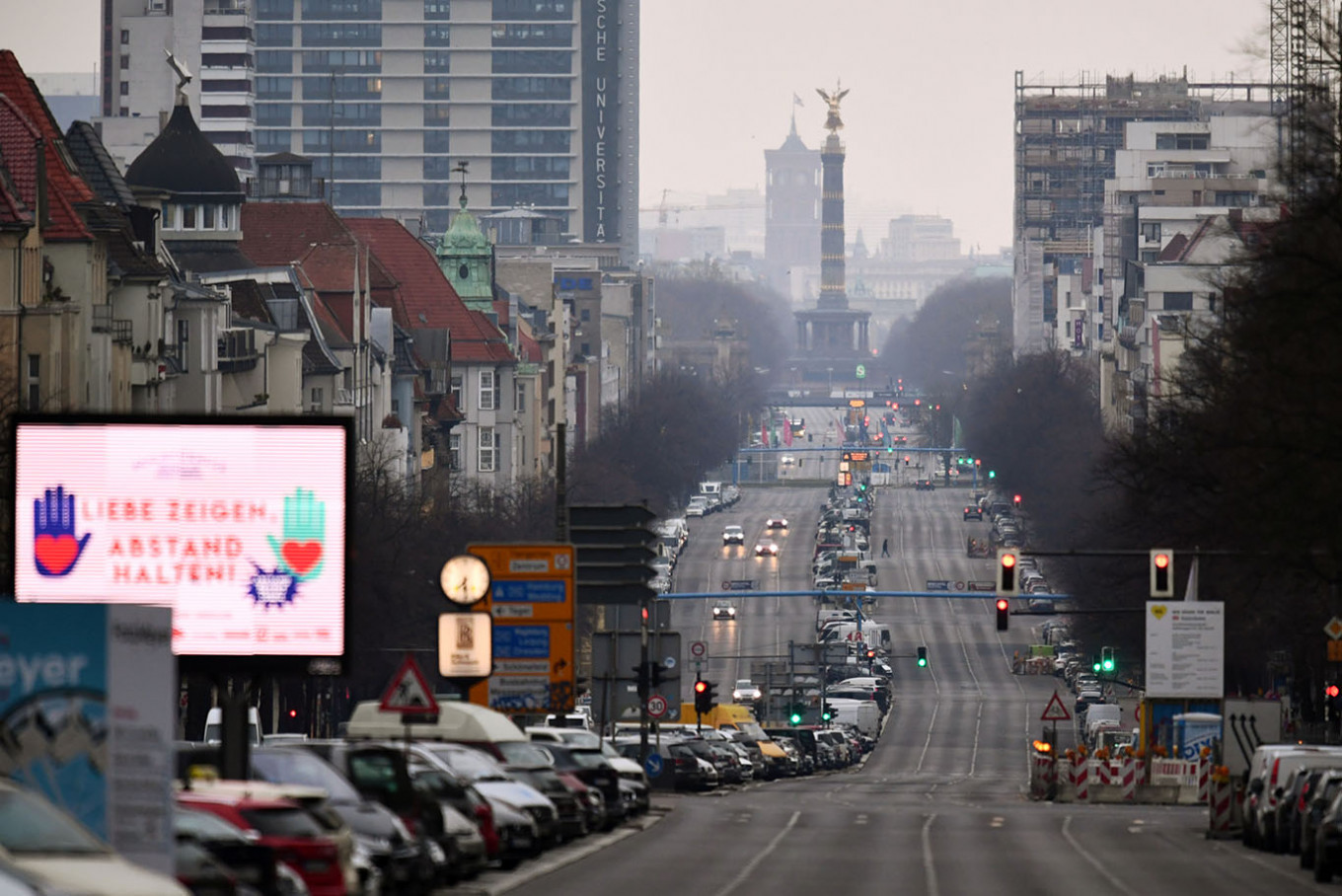Popular Reads
Top Results
Can't find what you're looking for?
View all search resultsPopular Reads
Top Results
Can't find what you're looking for?
View all search resultsGerman economy set for 'significant' recession: Economists
Change text size
Gift Premium Articles
to Anyone
M
easures to contain the coronavirus outbreak will slash German 2020 economic output by 2.8 to 5.4 percent before a rebound next year, a panel of economists who advise the government said Monday.
"The German economy will shrink significantly in 2020," the so-called "Wise Men" expert panel (SVR) said, with the exact size of the impact "depending on the extent and duration of health policy measures and the subsequent recovery".
Like other economists around the world, the group sketched different scenarios for the virus' impact on Europe's top economy depending on whether it follows a "V" shape, with a sharp drop matched by a swift recovery, or a more prolonged "U" in which the rebound takes longer to materialise.
Germany's 83 million people are currently under slightly less strict lockdown conditions than in other European nations like France and Italy, with non-essential excursions outside mostly still allowed.
But companies from airline giant Lufthansa to car behemoth Volkswagen have already slashed their operations in response.
'V' or 'U'?
In their central outlook with activity "normalising over the summer", the SVR forecast a 2.8 percent drop in gross domestic product (GDP) in 2020, followed by a 3.7 percent expansion next year.
But a deeper "V" due to widespread halts in production or a longer period of isolation to slow the virus' spread could bring a 5.4 percent slump, followed by growth of 4.9 percent in 2021.
In the still-more-damaging "U" scenario, with contact restrictions lasting "beyond the summer" and economic recovery setting in only next year, GDP might fall 4.5 percent in 2020, but add just 1.0 percent next year, the experts suggested.
SVR member Achim Trueger urged Berlin to coordinate with governments elsewhere in Europe and further afield on both health and economic measures to lay the groundwork for the recovery in Germany's highly-interconnected economy.
"It's not much good if one country, hopefully Germany, comes through the crisis relatively well, but around us the crisis is not yet over, then we won't be able to ramp up production," Trueger said.
The SVR members hailed as "welcome" a 1.1-trillion-euro package of economic support from Berlin including easier access to benefits for workers on shorter hours, guarantees for loans to business and direct support for firms hardest hit by the crisis – up to and including the state taking stakes in stricken companies.
In the weeks ahead, "optimum use should be made of the time during which the public health measures are in place in order to support the recovery and long-term economic development," the experts added.
That could range from training and further education for workers to making faster progress on construction projects in areas affected by shutdowns, like schools and public transport.
"Further, the restrictions make fast progress on digitalisation imperative for businesses and public administration," the economists said – with integrating IT into daily work, an area where Germany is widely seen as lagging behind.










